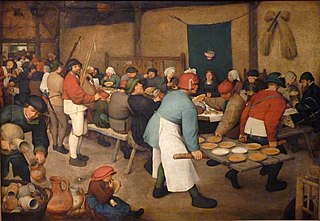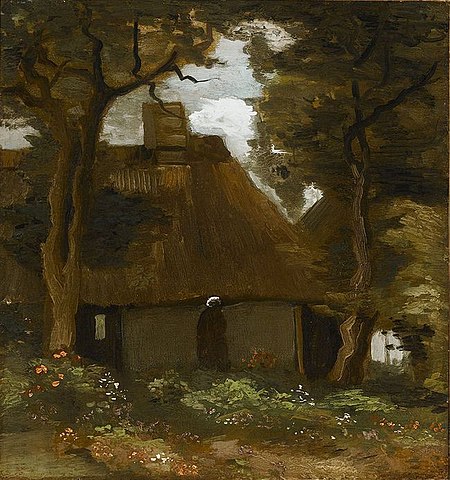Valencian Names: Use Names, Bynames, Family names, and deed names
It is said that in the ancient Golden empire, long ago turned to dust, that one could hold power over another by conjuring with their name. Just as it is widely known that if one knows the true name of a demon, they can bind it to their will and force it into servitude, it is common knowledge that the same fate may await any person whose name is known by a conjurer. Regardless of whether or not there is truth in that belief, it has been a common practice in Valencia for individuals to be publicly known by a byname and a use-name.
Typically when a baby is born their parents give their child both its true name as well as a temporary name. While a son's true name might be Fjolnir, parents would refer to him with a nickname they decide upon birth. These nicknames are arbitrary and could be just about anything from a common proper name to a description, or just about anything else. A baby born in a rain storm near the woods might be called Regnfell (which means Rain in the Woods in the common tongue), or whatever the parents feel in that moment.
Traditionally it is the responsibility of the parents to protect the child from sorcery by keeping their true name secret, even to the children themselves, until they are old enough to be trusted with their own name. Their name is often revealed to them upon reaching their age of majority, which in Valencia is usually around the age of 14 years. The actual age of one's Name Age differs from region to region but the tradition is mostly the same.
When a child reaches their name age they are considered grown and responsible enough to guard their own true name. Culturally, this means the youth is no longer a child and that they are expected to take on adult and self responsibilities. When one reaches their name age there is always a celebration and a ritual. Depending upon the wealth and status of the family it could be a simple celebration involving just the family or a huge event. Traditionally the rituals are symbolic of one's transition from childhood towards adulthood. A poor family's tradition may be that the child packs away his toys and is presented with tools. A very popular and almost universal ritual of symbolism is for the child to take a drink of water or milk, pour out the rest of the cup and then quaff wine of ale to demonstrate that they have rejected the trappings of childhood and are now prepared to take on the mantle of adulthood.
The family and any guests would then feast in honor of the youth reaching his name age and after the banquet the youth will declare his new use-name. Sometimes the youth decides to continue with his original use name assigned to him upon birth; sometimes they choose another name altogether. As the child has reached name-age, it is up to them to determine what they are named. so while a son's true name may be Fjolnir, he was known to all in his village a Regnfell. Upon reaching his name age he chose the name Fonlof for himself. As he matures and travels others will know him as Fonlof, but to many in his village he will always be known Regnfell, the son of Jorlick.
This practice is common to the point of being almost universal among the common folk and even the minor nobility. The upper nobility claim to not practice such superstitions, but it is said that they do likewise guard their true names to ward against wizards.
Bynames are also quite popular in Valencia. A byname is a sort of nickname that is a descriptive term, usually assigned by others, to describe the person. Such monikers as Iron Sides, Dwarf beard, the Stillborn, Fair Eye, and even the Weasel have been assigned to many. This also includes place and family names. The suffix 'son' or 'sa' is often added to the name of one's father. A family-based byname is popular when one's parent is a person of renown.
One's use name is not necessarily permanent. As one reaches full maturity and adulthood, travels, changes occupations, or is wed another name may present itself. To further complicate things, one is typically called by the name others are most accustomed to calling them. As the vast majority of Valencia's settled lands are small hamlets and villages within a few days' proximity of one another, there might be a few people named Fonlof (for example) in any particular area. One Fonlof once killed a wolf threatening his sheep with his bare hands and became known as Fonlof Lupbane, where another Fonlof originally lived in nearby Quaydock and is known as Fonlof of Quaydock.
If Fonlof of Quaydock's father, Halgarus, was well-known in the area he might also be bynamed as Halgarusson. So while his true name may be Regnfell, he becomes known as Fonlof Halgarusson of Quaydock. If he has some notable feature or does a notable deed, his name gets further detailed to describe those. These bynames are usally added after one's use and by names as 'the conquerer', 'the valorious', etcetera.
The multiple dialects of the common tongue of Valencia are all quite descriptive. To them, one's name is much more than a simple identifying label. It is a story of the person that not only gives their common name, but also designates their character, their deeds, and their own personal histories. In scholarly writings, it is quite common for the sages to refer to a person by their complete name. If the person is now dead, their true name, if known, is often revealed as well as it no longer needs protecting. If Fonlof of Quaydock cast off his farming roots and became a king, he might be posthumously referred to as Regnfell Fonlof Halgarusson of Quaydock the Plowking.
My name is Lord Sir King Knight Regnfell Fonlof Halgarusson Scuttsjarl of Quaydock and Scuttfell, the Stout Ironwall Plowking and son of Halgurus the plow man. I am known as Fonlof Ironwall in Chandale, Plowking the Reever in the North, and King of Scuttfell. You may call me my liege, or Ironwall
Remove these ads. Join the Worldbuilders Guild





Comments